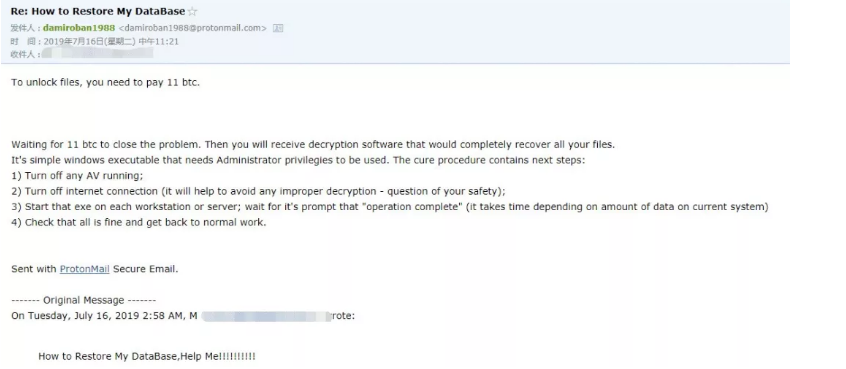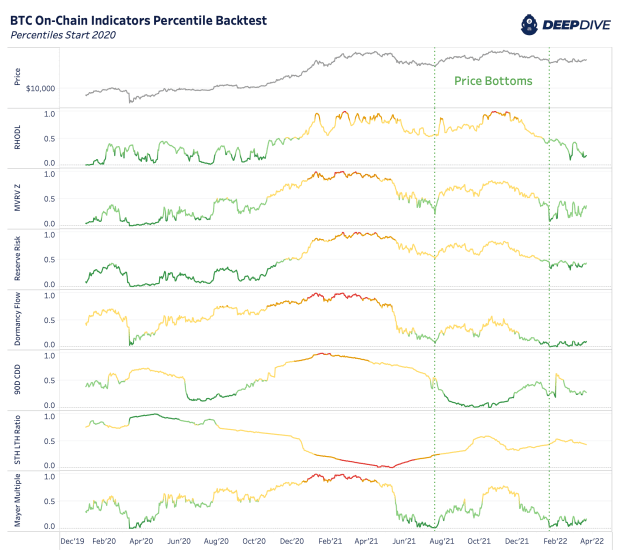The War On Dissent
Online censorship is becoming increasingly normalized as growing restrictions, deplatforming and its other manifestations have become so pervasive that many have simply come to accept it.
This article originally appeared in Bitcoin Magazine’s “Censorship Resistant Issue.” To get a copy, visit our store.
Online censorship is becoming increasingly normalized as growing restrictions, deplatforming and its other manifestations have become so pervasive that many have simply come to accept it. This “new normal” for free speech is as insidious as it has been gradual, as we are increasingly being trained to accept unconstitutional limitations on what we can express on the websites that dominate online socialization. Like so much of our lives, social interaction has moved online at a rapid pace in the last decade, meaning that restrictions imposed upon online speech have a disproportionate effect on speech in general.
The argument that is often deployed to dismiss concerns regarding online censorship is the claim that the dominant social media companies are private, not public, entities. However, in reality, the Big Tech firms that dominate our online lives, particularly Google and Facebook, were either created with some involvement of the U.S. national security state or have become major U.S. government and/or military contractors over the past two decades.(i,ii,iii,iv,v) When it comes to censoring and deplatforming individuals for claims that run counter to U.S. government narratives, it should be clear that Google-owned YouTube, and other tech platforms owned by contractors to the U.S. military and intelligence communities, have a major conflict of interest in their stifling of speech.
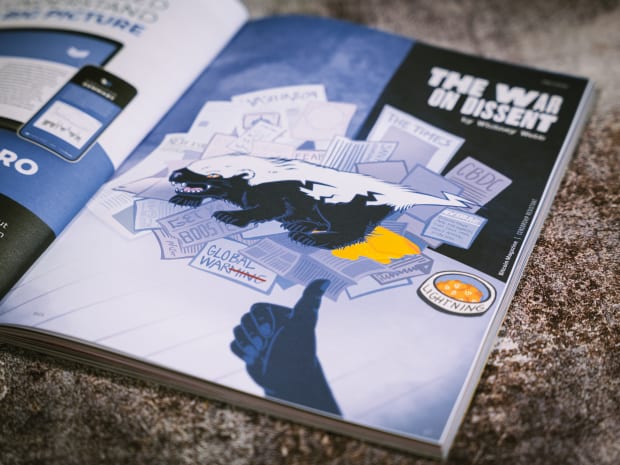
The line between “private” Silicon Valley and the public sector has become increasingly blurred and it is now a matter of record that these companies have illegally passed information onto intelligence services, like the National Security Agency (NSA), for blatantly unconstitutional surveillance programs aimed at American civilians.(vi) All indications point to the military-industrial complex having expanded into the military-technology-industrial complex.
These days, one need only look at important government commissions — such as the National Security Commission on Artificial Intelligence (NSCAI), headed by former Google/Alphabet CEO Eric Schmidt — to see how this de facto public-private partnership between Silicon Valley and the national security state functions, and its outsized role in setting important tech-related policies for both the private and public sectors. For example, that commission, largely comprised of representatives of the military, intelligence community and the scions of Big Tech, has helped set policy on “countering disinformation” online. More specifically, it has recommended weaponizing Artificial Intelligence (AI) for the express purpose of identifying online accounts to deplatform and speech to censor, framing this recommendation as essential to U.S. national security as it relates to “information warfare.”(vii,viii)
There are already several companies competing to market an AI-powered censorship engine to the national security state as well as the private sector. One of these companies is Primer AI, a “machine intelligence” company that “builds software machines that read and write in English, Russian, and Chinese to automatically unearth trends and patterns across large volumes of data.” The company publicly states that their work “supports the mission of the intelligence community and broader DOD by automating reading and research tasks to enhance the speed and quality of decision-making.” Their current roster of clients includes the U.S. military, U.S. intelligence, major American companies like Walmart and private “philanthropic” organizations like the Bill & Melinda Gates Foundation.(ix)
Primer’s founder, Sean Gourley, who previously created AI programs for the military to track insurgents in post-invasion Iraq, asserted in an April 2020 blog post that “computational warfare and disinformation campaigns will, in 2020, become a more serious threat than physical war, and we will have to rethink the weapons we deploy to fight them.”(x) In that same post, Gourley argued for the creation of a “Manhattan Project for truth” that would create a publicly available Wikipedia-style database built off of “knowledge bases [that] already exist inside many countries’ intelligence agencies for national security purposes.” Gourley wrote that “this effort would be ultimately about building and enhancing our collective intelligence and establishing a baseline for what’s true or not.” He concludes his blog post by stating that “in 2020, we will begin to weaponize truth.”
Since that year, Primer has been under contract with the U.S. military to “develop the first-ever machine learning platform to automatically identify and assess suspected disinformation.”(xi) That the term “suspected disinformation” was used is no accident, as many instances of online censorship involve merely assertions, as opposed to confirmations, that censored speech is part of a nation state-connected or “bad actor”-connected organized disinformation campaign. While those campaigns do exist, legitimate and constitutionally protected speech that deviates from the “official” or government-sanctioned narrative are frequently censored under these metrics, often with little to no ability to meaningfully appeal the censor’s decision. In other cases, posts “suspected” of being disinformation or that are flagged as such (sometimes erroneously) by social media algorithms, are removed or hidden from public view without the poster’s knowledge.
In addition, “suspected disinformation” can be used to justify the censorship of speech that is inconvenient for particular governments, corporations and groups, as there is no need to have evidence or present a coherent case that said content is disinformation — one must only cast suspicion upon it in order to have it censored. Further complicating this issue is the fact that some claims initially labeled “disinformation” later become accepted fact or recognized as legitimate speech. This has happened on more than one occasion during the COVID-19 crisis, where content creators had their accounts deleted or their content censored just for broaching issues like the lab-leak hypothesis as well as questions over mask and vaccine efficacy, among many other issues.(xii, xiii) A year or two later, much of this supposed “disinformation” was subsequently admitted to include legitimate avenues of journalistic inquiry and the initial, blanket censorship on these topics was done at the behest of public and private actors alike due to their inconvenience to what had once been the prevailing narrative.(xiv, xv)
Primer is only one of several companies seeking to create a world where “truth” is defined by the U.S. national security state, with that rigid definition then being enforced by Big Tech companies with no room for debate. Brian Raymond, a former official for the CIA and the National Security Council who now serves as Primer’s vice president, openly wrote about this in November 2020 for Foreign Policy.
In that article, he stated:
“Companies like Facebook, Twitter, and Google are increasingly working with U.S. defense agencies to educate future software engineers, cybersecurity experts, and scientists. Eventually, once public-private trust is fully restored, the U.S. government and Silicon Valley can forge a united front in order to effectively take on fake news.” (xvi)
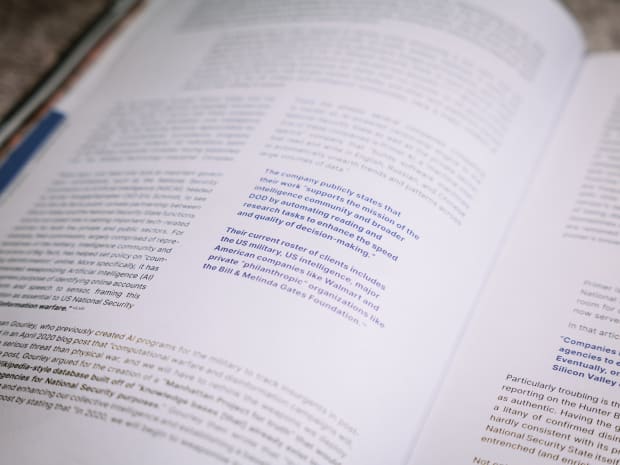
Particularly troubling is the fact that Raymond’s chief example of “fake news” at the time was the New York Post’s reporting on the Hunter Biden laptop emails, which — well over a year after the fact — has now been confirmed as authentic.(xvii) Having the government, and more specifically the national security state, which has conducted a litany of confirmed disinformation and propaganda campaigns over the years, define truth and reality is hardly consistent with its professed goal of protecting “democracy.”(xviii) Instead, it protects the interests of the national security state itself, whose own interests are tightly interwoven with those of the country’s increasingly entrenched (and enriched) oligarchy.
Not only do we have the national security state in a de facto public-private partnership with Big Tech to censor online information — Now, with the recent launch of the Biden administration’s war on domestic terror, we have the same national security state framing “suspected disinformation” and “conspiracy theories” as national security threats. The policy documents that outline this new war note that a major “pillar” of the government’s entire strategy is to eliminate online material that they claim promotes “domestic terrorist” ideologies, including those that “connect and intersect with conspiracy theories and other forms of disinformation and misinformation.” The proliferation of “dangerous” information “on Internet-based communications platforms such as social media, file-upload sites and end-to-end encrypted platforms”, it argues, “[…] can combine and amplify threats to public safety.” The “front lines” of this war are “overwhelmingly private-sector online platforms.”
The problem with this framing is that the Biden administration’s definition of “domestic terrorist” used in these same documents is incredibly broad. For example, it labels opposition to corporate globalization, capitalism and government overreach as “terrorist” ideologies. This means that online content discussing “anti-government” and/or “anti-authority” ideas, which may simply be criticisms of government policy or the national power structure, could soon be treated in the same way as online Al Qaeda or ISIS propaganda. In addition, intelligence agencies in both the U.K. and U.S. have moved to treat critical reporting of COVID-19 vaccines and mandates as “extremist” propaganda, despite the fact that a significant percentage of Americans have chosen not to get the vaccine and/or oppose vaccine mandates.
In what appears to be the apparent fulfilment of Primer AI executives’ pleas, the Biden administration also underscores the need to “increase digital literacy” among the American public, while censoring “harmful content” disseminated by “domestic terrorists” as well as by “hostile foreign powers seeking to undermine American democracy.” The latter is a clear reference to the claim that critical reporting of U.S. government policy, particularly its military and intelligence activities abroad, was the product of “Russian disinformation,” a now-discredited claim that was used to heavily censor independent media. Regarding “increasing digital literacy,” the policy documents make it clear that this refers to a new “digital literacy” education curriculum that is currently being developed by the Department of Homeland Security (DHS), the U.S.’ domestically-focused intelligence agency, for a domestic audience. This “digital literacy” initiative would have previously violated U.S. law, until the Obama administration worked with Congress to repeal the Smith-Mundt Act, which lifted the World War II-era ban on the U.S. government directing propaganda at domestic audiences.
The Biden administration’s war on domestic terror policy also makes it clear that the censorship, as described above, is part of a “broader priority” of the administration, which it defines as follows:
“[…] enhancing faith in government and addressing the extreme polarization, fueled by a crisis of disinformation and misinformation often channeled through social media platforms, which can tear Americans apart and lead some to violence.”
In other words, fostering trust in government while simultaneously censoring “polarizing” voices who distrust or criticize the government is a key policy goal behind the Biden administration’s new domestic-terror strategy. In addition, this statement implies that Americans not agreeing with each other is problematic and frames that disagreement as a driver of violence, as opposed to a normal occurrence in a supposed democracy that has constitutional protections for freedom of speech. From this framing, it is implied that such violence can only be stopped if all Americans trust the government and agree with its narratives and “truths.” Framing deviations from these narratives as national security threats, as is done in this policy document, invites the labeling of non-conforming speech as “violence” or as “inciting violence” through the fomentation of disagreement. As a result, those who post non-conforming speech online may soon find themselves being labeled as “terrorists” by the state.
If we are to accept the “new normal” of online censorship, these efforts to prohibit debate and legitimate criticisms of government policy in the name of “national security” will continue unimpeded. In short order, the First Amendment will be redefined so that it only protects government-sanctioned speech, not the freedom of speech, as was intended. While such measures are often framed as necessary to “protect” democracy, the elimination and imminent criminalization of legitimate speech is the true threat to democracy, one that should deeply disturb all Americans. If the national security state controls and enforces the only permissible narratives and the only permitted version of the “truth,” they will then also control human perception, and — as a consequence — human behavior.
Such control has long been a goal of some within the U.S.’ military and intelligence communities, but it is anathema to the values and desires of the vast majority of Americans. If there is no meaningful pushback against the increasing fusion of the national security state and Big Tech, Americans are guaranteed to lose much more than just the freedom of speech, as controlling speech is just the first step towards controlling all behavior. Americans would do well to remember the warning of Benjamin Franklin as the U.S. government moves to criminalize free speech under the guise of protecting national security; “Those who would give up essential liberty, to purchase a little temporary safety, deserve neither liberty nor safety.”
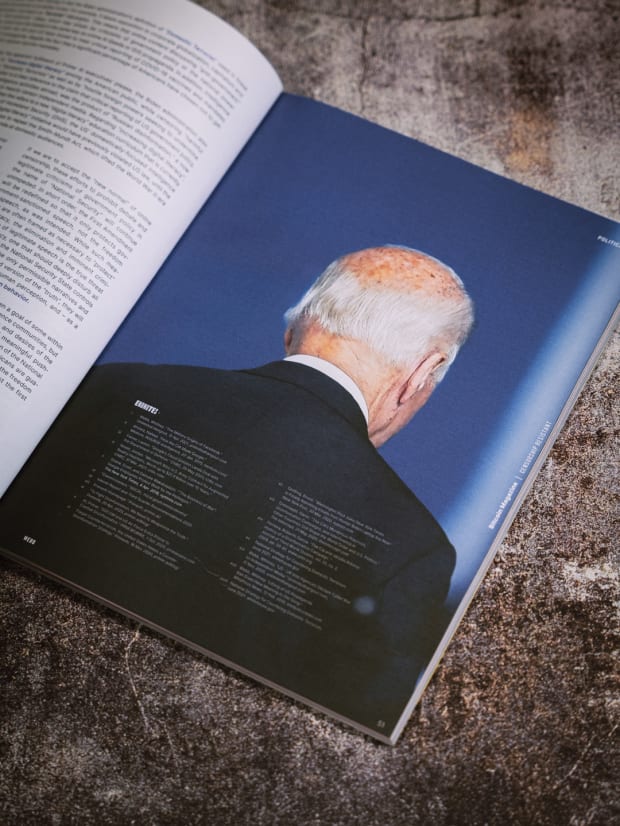
Endnotes:
i Webb, Whitney. “The Military Origins of Facebook.” Unlimited Hangout, 12 Apr. 2021, unlimitedhangout.com/2021/04/investigative-reports/the-military-origins-of-facebook/.
ii Ahmed, Nafeez. “How the CIA Made Google.” Medium, INSURGE intelligence, 22 Jan. 2015, medium.com/insurge-intelligence/how-the-cia-made-google-e836451a959e.
iii Feiner, Lauren. “Google’s Cloud Division Lands Deal with the Department of Defense.” CNBC, 20 May 2020, www.cnbc.com/2020/05/20/googles-cloud-division-lands-deal-with-the-department-of-defense.html.
iv Novet, Jordan. “Microsoft Wins U.S. Army Contract for Augmented Reality Headsets, Worth up to $21.9 Billion over 10 Years.” CNBC, 31 Mar. 2021, www.cnbc.com/2021/03/31/microsoft-wins-contract-to-make-modified-hololens-for-us-army.html.
v Shane, Scott, and Daisuke Wakabayashi. ““The Business of War”: Google Employees Protest Work for the Pentagon.” The New York Times, 4 Apr. 2018, www.nytimes.com/2018/04/04/technology/google-letter-ceo-pentagon-project.html.
vi “Commissioners.” NSCAI, www.nscai.gov/commissioners/.
vii Interim Report and Third Quarter Recommendations. 2020.
viii PrimerAI Homepage.” PrimerAI, primer.ai/.
ix “To Fight Disinformation, We Need to Weaponise the Truth.” PrimerAI, 20 Apr. 2020, primer.ai/blog/to-fight-disinformation-we-need-to-weaponise-the-truth/.
x AI, Primer. “SOCOM and US Air Force Enlist Primer to Combat Disinformation.” www.prnewswire.com, 1 Oct. 2020, www.prnewswire.com/news-releases/socom-and-us-air-force-enlist-primer-to-combat-disinformation-301143716.html/.
xi Forget Counterterrorism, the United States Needs a Counter-Disinformation Strategy.” PrimerAI, 16 Nov. 2020, primer.ai/blog/forget-counterterrorism-the-united-states-needs-a-counter-disinformation/.
xii Golding, Bruce. “Washington Post Joins New York Times in Finally Admitting Emails from Hunter Biden Laptop Are Real.” New York Post, 30 Mar. 2022, nypost.com/2022/03/30/washington-post-admits-hunter-biden-laptop-is-real/.
xiii Greenwald, Glenn. “The CIA’s Murderous Practices, Disinformation Campaigns, and Interference in Other Countries Still Shape the World Order and U.S. Politics.” The Intercept, 21 May 2020, theintercept.com/2020/05/21/the-cias-murderous-practices-disinformation-campaigns-and-interference-in-other-countries-still-shapes-the-world-order-and-u-s-politics/.
xiv Ferreira, Roberto Garcia. “The Cia and Jacobo Arbenz: History of a Disinformation Campaign .” Journal of Third World Studies, vol. 25, no. 2, 2008, pp. 59–81, www.jstor.org/stable/45194479, 10.2307/45194479.f.
xv National Strategy for Countering Domestic Terrorism, June 2021. https://www.whitehouse.gov/wp-content/uploads/2021/06/National-Strategy-for-Countering-Domestic-Terrorism.pdf.
xvi Webb, Whitney. “US – UK Intel Agencies Declare Cyber War on Independent Media.” Unlimitedhangout.com, 11 Nov. 2020, unlimitedhangout.com/2020/11/reports/us-uk-intel-agencies-declare-cyber-war-on-independent-media/.
xvii Webb, Whitney. “Lifting of US Propaganda Ban Gives New Meaning to Old Song.” MintPress News, 12 Feb. 2018, www.mintpressnews.com/planting-stories-in-the-press-lifting-of-us-propaganda-ban-gives-new-meaning-to-old-song/237493/.
xviii National Strategy for Countering Domestic Terrorism, June 2021. https://www.whitehouse.gov/wp-content/uploads/2021/06/National-Strategy-for-Countering-Domestic-Terrorism.pdf/.



